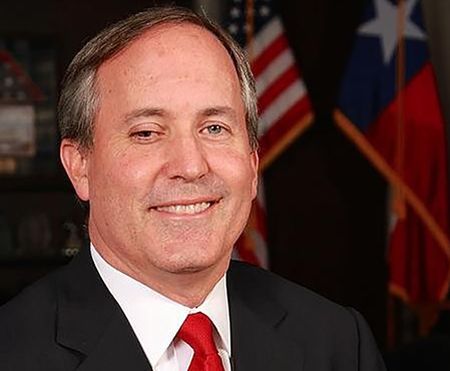It appears Republican Legislators have done their job – and ESG is, perhaps, on its way out.
WASHINGTON, D.C. (Texas Insider Report) — For far too long many of the Wall Street investment houses and their cheerleaders in California in the environmental community have pushed to try to adopt mandates dealing with so-called Environmental, Social, and Governance (ESG) issues. In some corners, these efforts have succeeded because even though there have been efforts to push back against ESG driven investments, far too many Americans have lacked a substantive familiarity with the topic.
However, it seems that the efforts to push back on these misguided policies are starting to pay off with more and more news reports popping up that are no longer focused on increased efforts to control American’s lives through directives aimed at corporations.
 Instead, the news is now hitting on the increased shift away from ESG.
Instead, the news is now hitting on the increased shift away from ESG.Whether it be from reports like large investment management company “BlackRock's [CEO] Larry Fink says he is done using term 'ESG' amid growing backlash,” or that “ESG has lost its meaning. One advocate says – let's throw it in the trash.”
It appears Republican Legislators have done their job and – ESG is, perhaps, seemingly on its way out.
Over several years, Republican leaders in states across the nation have targeted the financial sector for what it deems “ideological investing,” also coined ESG. Several states – Texas, Florida, Oklahoma, Kansas and more – passed laws that seek to prevent financial institutions from considering ESG factors when managing public funds. Companies who once publicly endorsed that approach – BlackRock, Vanguard, and State Street, among others – appear to have heard Republican’s message loud and clear.
- READ MORE: New Report Shows the Death of the ESG Movement was Started in Texas
- For several years top Republican policymakers in Texas and across the nation have urged businesses to move on from the so-called Environmental, Social & Governance (ESG) topics. There's new proof Wall Street firms have started to change their behavior.
Paxton’s letter outlines that companies that contract with government entities will be required to verify in writing that they are currently not, and will not, boycott energy companies, Israel, or have a policy or practice of discriminating against firearm entities or associations.
 Paxton stated his office will "continue to vigorously enforce our laws that prevent taxpayer funds from going to companies whose ‘ESG’ policies harm Texans or key Texas industries.”
Paxton stated his office will "continue to vigorously enforce our laws that prevent taxpayer funds from going to companies whose ‘ESG’ policies harm Texans or key Texas industries.”
But some banks and asset managers have already started to change their tone, taking notice of the legislation and commentary from state leadership.
 Paxton stated his office will "continue to vigorously enforce our laws that prevent taxpayer funds from going to companies whose ‘ESG’ policies harm Texans or key Texas industries.”
Paxton stated his office will "continue to vigorously enforce our laws that prevent taxpayer funds from going to companies whose ‘ESG’ policies harm Texans or key Texas industries.”But some banks and asset managers have already started to change their tone, taking notice of the legislation and commentary from state leadership.
The most obvious example of this shift was when Vanguard pulled out of Net Zero Asset Managers (NZAM) initiative right before Texas held their Senate Committee on State Affairs hearing in Marshall last December. They cited the reason as “want[ing] to demonstrate independence and clarify its views for investors.”
Another example of a shift in rhetoric was when CEO of BlackRock, Larry Fink, put out his most recent annual letter and didn’t mention ESG once. He even went as far as to note the importance of fossil fuels, “Traditional fossil fuels like natural gas will play an important role…” And after that, BlackRock elected Amin Hassan Ali Nasser, President & CEO of the Saudi based oil company, Aramco, to their Board of Directors.
These shifts, paired with Exxon Mobil’s recent vote for acquisition of drilling giant Pioneer, prove the ESG movement has lost all momentum. Exxon’s deal received unanimous support – even from the directors that BlackRock and other investment firms supported during a contentious Board vote just two and a half years ago.
As a result of this deal, Exxon will be drilling even more despite two years of the left’s push against fossil fuels.
The tide has definitely turned. Not long ago, it was big news that all of the Big Three asset managers – BlackRock, State Street and Vanguard – reported a decline in their support for ESG proposals. Vanguard reported the lowest, only voting for 2% of shareholder resolutions related to ESG.
These are great moves by these asset managers; notably very different than even one year ago.
Most recently, and maybe most shockingly, was a recent interview on the Wall Street Journal’s Free Expression podcast that BlackRock’s famous CEO Larry Fink gave where he discussed a bevy of issues. Most interesting were his comments on ESG, energy investing and how it in his mind the issue had become so controversial.
 Most notably, building off of the previous report that there was a decline in support for ESG proposals, Fink said,
Most notably, building off of the previous report that there was a decline in support for ESG proposals, Fink said, “[Last year] we voted against almost all the proposals that quote unquote were ‘environmental.’ The reason why is the SEC changed the standards to what can be included in a proxy vote. And most of it is non-economic, and we vote against it.”
He reiterated throughout the 45-minute podcast that the money BlackRock invests is not their money, and always client-focused:
“Everything we do is on behalf of our clients, and everything we do is with the purpose of financial returns. There's not one thing we have ever done, whether it's ESG or any other issue, that is not in the pursuit of financial return.”
Pretty interesting.
Fink went on to point out that ESG is a response to certain market forces and politics, specifically in Europe, where they have taken a far more radical stance than the U.S. on environmental issues. He pointed out that what is preferred by some investors might not be wanted by others. But regardless there needs to be options for both:
“I mean, we offer choice. So, we are working with every company, every client… “If you want to invest in hydrocarbons, we will select the best hydrocarbon companies in the world for you. If you want to invest in a more decarbonized portfolio, we're going to try to find the best economic portfolio that will achieve your financial goal.”
Whether or not Larry Fink believes all that he said is beyond the point. The main takeaway from all of this – and the WSJ interview specifically – is the noticeable shift in rhetoric from the CEO of one of the world’s largest financial firms.
The bills that passed have changed the discussion and direction of the debate.
- Conservative politicians taking hard stances and putting their constituents and state funds first pushed the needle in the right direction.
- Asset managers have backed down. They are voting less and less on ESG matters.
- They’re admitting to the need for fossil fuels for years to come.
























